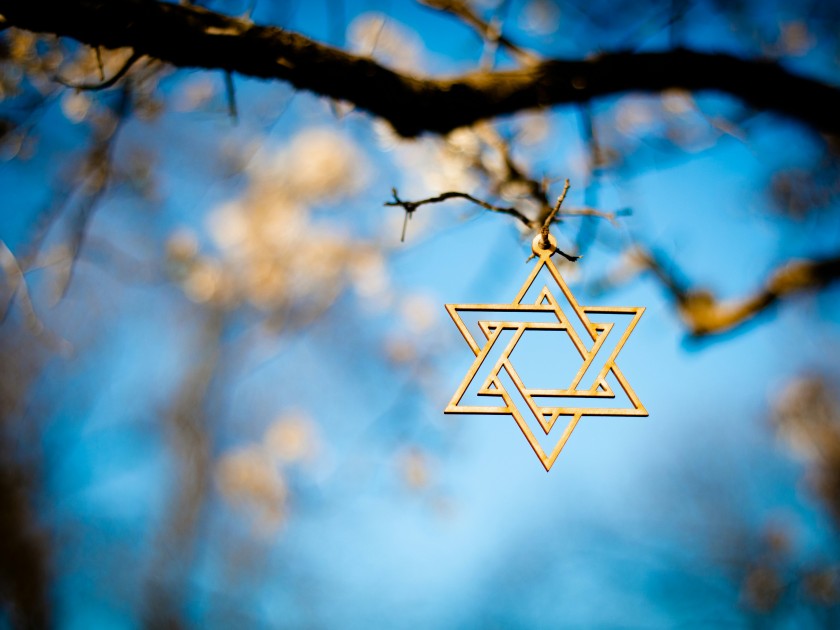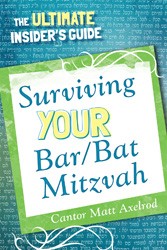
Photo by David Holifield on Unsplash
In July of 1969, I flew with my family to Israel for the first time. The El Al captain came on the PA system to announce that an American astronaut named Neil Armstrong had just walked on the moon. My sights were set on distant climes, and my sense that anything was possible was confirmed.
My generation was probably the first to feel utterly accepted as Americans and as Jews. I grew up in Queens with a diverse group of friends from public school. Sports and comic books were our common language, cementing our shared Americanness. There was no question of my belonging. I assumed my pals, regardless of their ethnicity or religion, felt the same way. Those of us who had hyphenated identities were proud of who we were.
My novel, Adam Unrehearsed, is a coming-of-age comedy about a twelve-year-old boy in Flushing, New York in the run-up to his bar mitzvah. The story is set in 1970 and 1971 — a seminal moment in American Jewry. It was three years after Israel’s lightning victory in the Six-Day War, which sent American Jewish pride sky-high, and three years before the Yom Kippur War would puncture that balloon. The American Jewish community felt so secure, it went public with its own political cause: saving Soviet Jewry.
The nation was divided and in pain over the war in Vietnam, the shootings at Kent State, and the assassinations of Martin Luther King Jr. and Robert Kennedy. But our American can-do ethos resulted in a fusion of liberal and Jewish values, a synthesis that seemed inviolable: civil rights would deliver true equality, the War on Poverty would raise the poor into the middle class, air and water pollution could be reversed, and Jews, who had suffered so much as a minority, as immigrants, as vulnerable outsiders, would ensure that no one else had to endure such misery. The liberal leaders of Jewish congregations and organizations led the way. Yet those same American Jewish institutions have often been ridiculed in fiction — sometimes brilliantly — as an expression of materialistic culture with a shallow and tenuous connection to Judaism, or as archaic remnants of Old Europe.
I wanted to tell a story about a twelve-year-old Jewish boy who is not Orthodox and who has a positive relationship with synagogue life and its satellites — Hebrew school, junior congregation, Zionist youth movements, and summer camp. Adam Unrehearsed builds up to Adam Miller’s bar mitzvah, the one day that Adam’s non-Jewish friends — and all of his Jewish friends — see him in a Jewish context. For me as for my protagonist, these frameworks were formative. They offered me a private universe in which I had a second, secret identity. Even my rebellions against them — such as quitting the synagogue youth group to join Young Judaea and launching a rival Hebrew high school — were constructive. Like Adam, I had my personal multiverse.
Antisemitism takes hold in part because of ignorance of Jewish history and Jewish peoplehood.
Adam’s Jewish identity evolves throughout the novel. He prepares diligently for his bar mitzvah under the demanding tutelage of his cantor, a boisterous Holocaust survivor from Romania with great ambitions for Adam despite his “skinny voice.” Adam also takes his first hesitant steps into social activism, and, when he falls in love with acting, he stages a school play based on an Elie Wiesel novel. Teachers begin to reveal to Adam that they, too, are Jewish, and the very students Adam finds most intimidating respond with the greatest fervor to the show.
Adam develops survival antennae when school becomes a danger zone, as old friends inexplicably fall away and potential new friendships emerge. He feels caught off guard when he encounters antisemitism for the first time, first when he’s verbally and physically assaulted, and then when his synagogue is vandalized. Should he keep these incidents in perspective as unpleasant but marginal phenomena, as his father suggests, or should he see them as grave dangers that must be countered with militancy, as his older brother advocates?
When my parents warned me to be careful about how I behaved in public, it expressed their middle-class propriety, but it also meant that I should be on my best behavior in front of non-Jews — that I must never do anything to feed the antisemitic undertow. I thought their fears were exaggerated, holdovers from Father Coughlin’s antisemitic radio tirades during their childhoods, or from their own parents’ need to defend themselves bodily in Russia and Austria and on the rough streets of New York.
Despite the overwhelming acceptance that Jews have found in American society, expressions of antisemitism have exploded since the October 7th massacre of Israelis by Hamas and the subsequent war in Gaza. The venomous tone of many anti-Israel protests has been shocking; the blatant and selective distortions, the denial of atrocities and Jewish suffering, the replacement of criticism of Israeli policy with calls for Israel’s destruction.
American Jewry is perhaps facing another seminal moment. But I don’t think today’s antisemitism is the same as it was in the 1970s. What is similar is the feeling of being caught off guard, raising old anxieties about which friends we can depend on and which we cannot.
Antisemitism takes hold in part because of ignorance of Jewish history and Jewish peoplehood. The assumption that the Jewish story has already been told — that our epic is deeply familiar to most Americans — turns out to be mistaken. We have to keep telling people who we are, what we’ve been through, and what we stand for. Fiction, uniquely, allows us to share our internal conflicts and questions, and resist the temptation to replace nuance with slogans. To make sure the American Jewish experience remains a phenomenal success story, we need to keep telling our stories in all their complexity.
For 13 years, Don Futterman has been co-host of The Promised Podcast, an insider’s look at Israel with more than four million downloads. Don has written for The Daily Beast, The Times of Israel, and Haaretz, has published two children’s books and has a performance podcast, Futterman’s One-Man Show.



